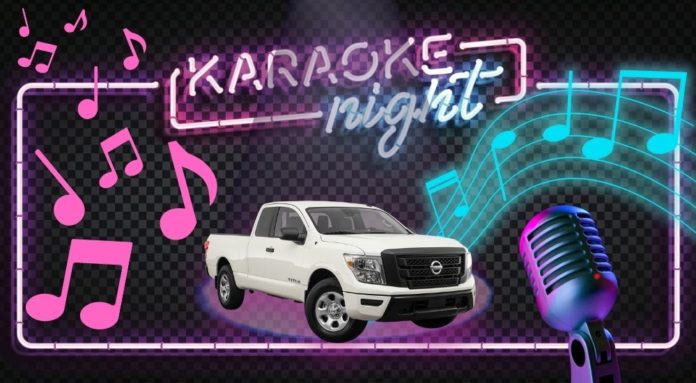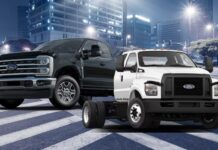Move over James Corden; Nissan is coming for you. The Japanese automaker recently announced plans to bring one of the Asian market’s most beloved features to North American shores, unveiling a new in-vehicle karaoke system on select models. Car crooning is already a massive trend in China, where automakers have integrated a number of popular karaoke apps into their vehicles allowing drivers to sing along to their favorite tunes and upload the resulting video. Chinese auto brands including XPeng, NIO, and BYD have even taken it one step further, integrating actual microphones into the cabin. With a karaoke-equipped Titan expected to roll onto lots in the U.S. any day now, there’s never been a better time for aspiring Adeles to make their way to their local Nissan Titan dealership.
Amateur sing-alongs have long been a popular form of entertainment, and karaoke apps like Changba have brought the trend into the modern era, allowing would-be crooners the opportunity to record their own voices over musical accompaniment while integrating a number of visual and audio effects. The appeal is undeniable, with Changa becoming the most-downloaded smartphone app in China within five days of its introduction. Competitors such as K Ge have seen similar success, boasting over 140 million active monthly users.
In addition to the Titan, the karaoke feature will be offered as a trim level on the popular Nissan Juke. The subcompact SUV will feature not only a fully-integrated karaoke setup but new badges and branding designating the model as the JukeBOX. Working in tandem with the SUV’s premium Bose Personal Plus audio system, the karaoke system promises to turn any traffic jam or drive-thru into an impromptu performance venue.
But some road safety experts are understandably alarmed by the emerging technology, which gives drivers yet another opportunity to ignore the serious business of operating a motor vehicle in favor of a smartphone-based distraction. Fender benders shot up some 3,000 percent across China in the weeks after such apps were introduced and while karaoke-related traffic incidents are now covered by most of the country’s major car insurance companies, no such policies currently exist in the Western market.
“We’ve found that the rate of accidents is directly proportional to the number of high notes one must hit during a performance, as these tend to cause drivers to close their eyes when reaching the higher octaves,” says Jeff Zhang, an insurance adjuster in Shandong province.
While the new line of microphone-equipped Nissans does an admirable job recreating the karaoke experience, there is one element sorely missing due to, you know, laws. “It turns out alcohol is a pretty vital part of karaoke,” says Erik Alstead, special projects manager at Nissan. “We can’t in good conscience encourage people to drink in their vehicles, but our research shows that without a little social lubrication very few drivers have the confidence to undertake the full six-minute rendition of Bohemian Rhapsody, and even fewer passengers have the patience to listen to it.”
The car has long been used as an ad-hoc recording booth, with drivers unabashedly belting out their favorite as if their windows aren’t see-through. Recognizing a niche when they see it, shower and bath manufacturers are rushing to get in on the trend, leveraging the superior acoustics of the average bathroom to deliver a high-fidelity karaoke experience. These ventures have been met with mixed results so far as the whole nudity aspect proves too difficult to program around. “We tried a filter that gave everyone a nice, smooth Ken doll-like body, but it was deemed deeply unsettling and quickly abandoned,” says Maxwell Erikson, an engineer at Kohler.












